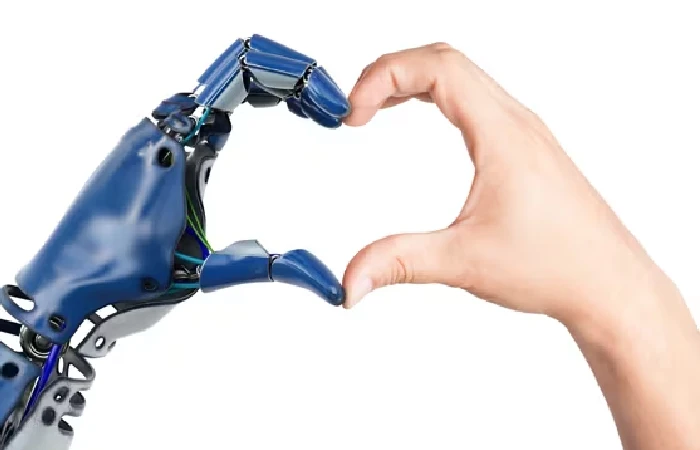Empathy AI-based 13M Lunden Techcrunch
Table of Contents
Introduction
To enhance accountability, it is thus necessary to consider the viewpoints and requirements of different stakeholders. In this regard, the notion of Empathy can be pretty compelling. Empathy remains defined as the ability to understand and communicate another person’s feelings non-judgemental (Wiseman, 1996). Empirical evidence links Empathy to moral recognition of ethical situations, a greater understanding of stakeholder impact, and improved success (Cartabuke et al., 2017).
Within the field of AI, there has been a growing interest in developing ’empathic AI systems’ (Empath, 2021; McQuiggan & Lester, 2006; Zhou, Gao, Li & Shum, 2020). However, by and large, Empathy is poorly formulated using proxy data such as facial expressions, voice signals, and gestures, without considering the multiple facets and subjective notions that Empathy entails (Stark & Hoey, 2021).
What is Empathy Technology?
Empathy is the human ability to put oneself in the place of another to understand better what another person feels or thinks. In other words, it is the understanding and feeling of another person’s emotional and cognitive experience. It is a human condition and not generally associated with technology.
However, Empathy has become more critical as technology continues to evolve, particularly with the advent of more human technologies, such as virtual agents who adopt a more involved relationship with their users.
Empathy is a crucial aspect of human communication, and as technology becomes more communicative and human, Empathy will become an increasingly important part of our relationship with that technology.
So, Empathetic Technology responds immediately to bio measures or actions not under conscious control, such as heart rate, voice tone, breath analysis, pupil dilation, muscular tension and sweat analysis. It is far more personal and is a bi-directional relationship with technology.
Empathy AI Based 13M Lunden Techcrunch
Today, a startup called Empathy is coming out of stealth to take approximately the stigmas out of working on some of those challenges head-on, with an AI-based platform for families to help organize affairs (and thus indirectly help assist in those families attending to themselves) after a death.
“On average, a family can spend 500 hours dealing with the different aspects related to the death of a loved one,” said CEO Ron Gura, who co-founded the company with Yonatan Bergman. “We provide a digital companion in the form of native apps built to empower bereaved families.” He said he likens Empathy to a “GPS for the recently bereaved.”
The Israeli startup is launching first in the U.S. market, and it’s doing so with $13 million in funding co-led by VCs General Catalyst and Aleph.
Some 3 million people, on average, die in the U.S. each year — a number that has seen some spikes more recently due to COVID-19. And despite it being one of the more natural and predictable things that we will all go through sooner or later, it’s not something that many people prepare for, whether it’s due to fear or religion or simply not wanting to dwell on morbid subjects.
Empathy AI Based
In a 2012 study by Aron K. Barbey et al., neuroscientists confirmed that emotional and cognitive intelligence share many neural systems for integrating cognitive, social, and affective processes. This study confirms what psychologists have suspected for decades. There are interdependencies between emotional and general intelligence.
Artificial Empathy
AE or computational Empathy is the development of AI systems − such as companion robots or virtual agents − that can detect. And respond to human emotions in an empathic way.
According to scientists, although the technology can be perceived as scary or threatening by many people. It could also have a significant advantage over humans in professions traditionally involved in emotional role-playing, such as healthcare.
From the caregiver’s perspective, for instance, performing emotional labour above and beyond the requirements of paid work often results in chronic stress. Or burnout and the development of a feeling of being desensitized to patients.
However, it remains argued that the emotional role-playing between the care receiver. And a robot can have a more favourable outcome in terms of creating the conditions of less fear. And concern for one’s predicament is best exemplified by the phrase: “if it is just a robot taking care of me. It cannot be that critical.
Empathy CrunchBase
The term “empathy” describes a wide range of experiences. Emotion researchers generally define Empathy as the ability to sense other people’s emotions. And imagine what someone else might think or feel.
Contemporary researchers often differentiate between two types of Empathy. “Affective empathy” refers to the sensations and feelings we get in response to others’ emotions. It can include mirroring what that person is feeling or just feeling stressed when we detect another’s fear or anxiety. “Cognitive empathy,” sometimes called “perspective taking,” refers to our ability to identify and understand other people’s emotions. Studies suggest that people with autism spectrum disorders have a hard time empathizing.
Having Empathy doesn’t necessarily mean we’ll want to help someone in need. Though it’s often a vital first step toward compassionate action.
Empathy Emerges from Stealth with $13M for a Digital Assistant
Some 3 million people, on average, die in the U.S. each year. A number that has seen some spikes more recently due to COVID-19. And despite it being one of the more natural and predictable things that we will all go through sooner or later. It’s not something that many people prepare for, whether it’s due to fear or religion. Or simply not wanting to dwell on morbid subjects.
Ironically, that hasn’t stood helped by the fact that it has, in turn. Created a pretty significant stigma around building services to help people deal with it. Either for themselves or on behalf of others.
In very typical startup fashion, this spells opportunity, of course.
“I’ve been obsessed with this narrative for a few years,” said Gura. Who previously worked with Bergman at The Gifts Project. And then later at eBay in Israel after it acquired the social gifting startup. “Death is one of the last consumer sectors untouched by innovation. It’s not because of technology or even a regulatory barrier.
Conclusion
Empathy’s approach is to make its help and build a business around that idea as transparent as possible. The company offers services for free for the first 30 days. And after that, you pay a one-off fee of $65, which does not go up the longer you use the service. Which could be five months or five years (or, yes, longer).
After you fill in a few details about your particular circumstance. You remain guided through a step-by-step process of all the different things you must deal with after a person dies.

